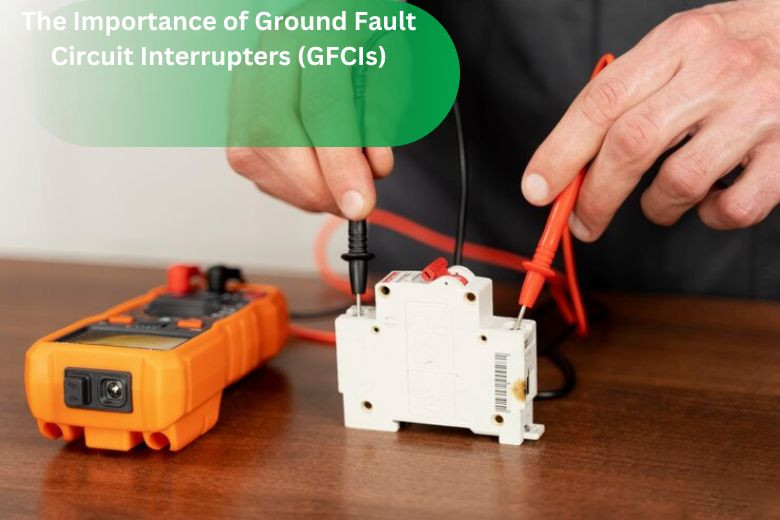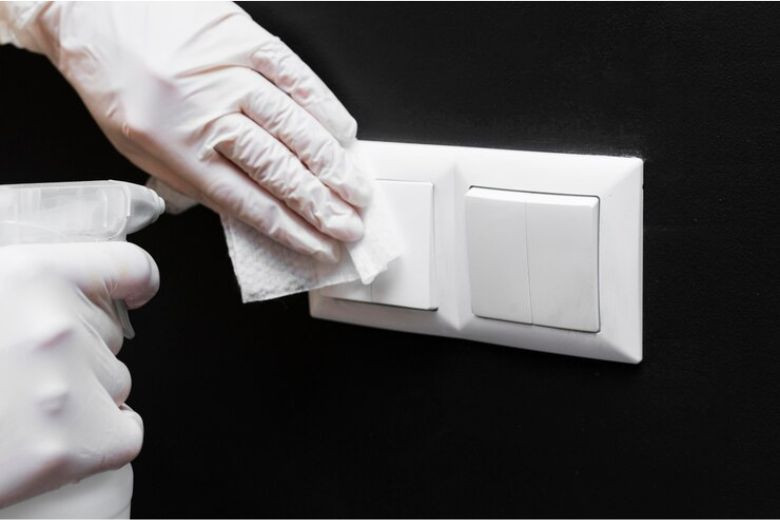The Importance of Ground Fault Circuit Interrupters (GFCIs)
Posted on September 14, 2024 by Admin

Ground-fault circuit interrupters rank among the pivotal components of contemporary electricity safety. They play a critical role in promoting electrical shock safety and ensuring the overall safe use of electrical systems in homes and commercial sites. An experienced Electrician Service Provider can help install and maintain these devices to enhance safety and system reliability. Understanding the importance of ground-fault circuit interrupters ensures a safer and more dependable electrical setup. Here is why ground-fault circuit interrupters are important and how they contribute to this safety.
What Are Ground Fault Circuit Interrupters?
Ground Fault Circuit Interrupters (GFCIs) are devices specifically designed to protect humans against electric shock. These devices detect an imbalance between the live and neutral wires in an electric circuit, which may indicate electricity leaking to the ground. Upon detecting a fault, a GFCI rapidly cuts off power to the circuit, preventing potentially hazardous shocks. This swift response significantly reduces the risk of injury or fatalities. An experienced Electrician Service Provider can ensure proper installation and maintenance of GFCIs, enhancing electrical safety in homes and commercial spaces.
Why GFCIs are Important for Electrical Safety
1. Protection Against Electrical Shocks
GFCIs, on the other hand, are crucial safety devices meant to secure safety from electrical shocks. An electric shock will happen when a person has contact with exposed wiring or wet surfaces. The most essential locations that necessitate the use of a GFCI are those with high levels of moisture, such as kitchens and bathing spots, and with outdoor outlets, where the possibility or probability of shock is higher, implying the shocks experienced will be harder. GFCIs reduce the risk of severe electrical shock significantly by cutting off power almost immediately when a ground fault is detected .

2. Fire Protection
GFCIs are also reported to offer fire protection. If a ground fault remains undetected, it could lead to the overheating of wires and other components of the system and ultimately ignite nearby combustible materials. Before ground faults cause a disaster, GFCIs detect these faults and eliminate them. In this case, accidents resulting from overheating and fires are much reduced. This would mean GFCIs are a critical part of an electrical system that does not pose any fire hazard.
3. Not in Violation of Electrical Codes
GFCI receptacles are a requirement in many areas as per the electric codes and electric rules to make sure safety standards are adhered to in order to protect house occupants from electric hazards. By installing GFCIs in regard to the local codes and requirements, you do not only adhere to the law but also ensure the overall safety of such electrical systems.
4. Installation and Setup Are Easy and Maintainable
GFCIs are relatively simple to install and maintain. They can be integrated into either an electrical outlet or circuit breaker panel. Once implemented, GFCIs don't require much maintenance; however, they have to be tested regularly so that they continue to operate properly. Most GFCIs have a test button that can be pressed for one to determine the functionality of the GFCI. So, one of the easy things that people can do to ensure electrical safety is to have their GFCIs in good working condition.
5. Application Versatility
GFCIs are versatile and can be used in basically various applications. Primarily found in houses and restaurants, among other business establishments, they are applied in bathrooms, kitchens, garages, to basements, and all the way to the great outdoors. With their flexibility comes increased value in any environment as long as there is a possibility for electrical faults to occur. By deploying GFI in these prime areas, you prevent the happening of undesired accidents.
Conclusion
GFCIs are essential for protecting against electrical shocks, preventing electrical fires, and ensuring compliance with safety codes. They can be easily implemented in various applications across residential and commercial properties. Smarter utilization of GFCIs enhances overall safety and safeguards human lives from potential electrical hazards. An experienced Electrician Service Provider can assist in integrating GFCIs into your electrical system, helping to minimize the risks associated with shock and fire. Adding GFCIs to your electrical setup is a crucial step toward a safer and more reliable system.
Also Read :
How to Finance Your Roof Replacement: Loans, Grants, and Insurance
Roof Safety Tips for Homeowners
The Impact of Algae and Moss on Your Roof
How to Deal with Roof Leaks During a Storm
How to Create an Electrical Maintenance Plan for Your Home
The Benefits of Green Roofs for Urban Homes
How to Finance Your Roof Replacement: Loans, Grants, and Insurance
Faqs
-
1. What do GFCIs do?
GFCIs prevent electrical shock by shutting off the power to the circuit due to an imbalance in electrical current. They shut off so fast that they avoid many shocks and possible injuries if a ground fault occurs in the electrical circuit.
-
2. Where should GFCIs be installed in a home?
GFCIs should be installed where there may be more moisture, such as kitchens, bathrooms, garages, basements, and all outdoor outlets. This means that the risk of an electrical fault occurring in these areas is relatively high due to water and dampness.
-
3. How often should GFCIs be tested?
GFCIs should be tested monthly to ensure they are working properly. Most GFCIs have a test button that allows for checking to see that it is working. Regular testing ensures on-going protection against shock.
-
4. Are GFCIs required by electrical codes?
Yes, GFCIs are generally required by electrical codes or regulations of many regions. These codes require that GFCIs be installed in certain areas to enhance safety and reduce the risk of electrical shocks and fires.
-
5. Can GFCIs prevent electrical fires?
While GFCIs are primarily designed for protection against electrical shock, they also help to prevent electrical fires by cutting off power when a ground fault is detected, thus reducing the risk of overheating and potential ignition of materials in the vicinity.
Recent Post
- Top Plumbing Service Providers in Arizona, USA
- Top 10 Electrician Service Providers in Alabama, USA
- Top 20 Roof Repair Service Providers in Alabama, USA
- The Role of Roof Insulation in Energy Efficiency: Tips and Tricks
- Understanding Roof Damage from Wildlife and How to Prevent It
- How to Choose the Best Roofing Contractor for Emergency Repairs
- Roofing Maintenance for Historic Homes: Preserving Architectural Integrity
- The Importance of Proper Attic Ventilation for Roof Health
- How to Identify and Prevent Roof Mold and Mildew
- The Best Practices for Removing Snow from Your Roof